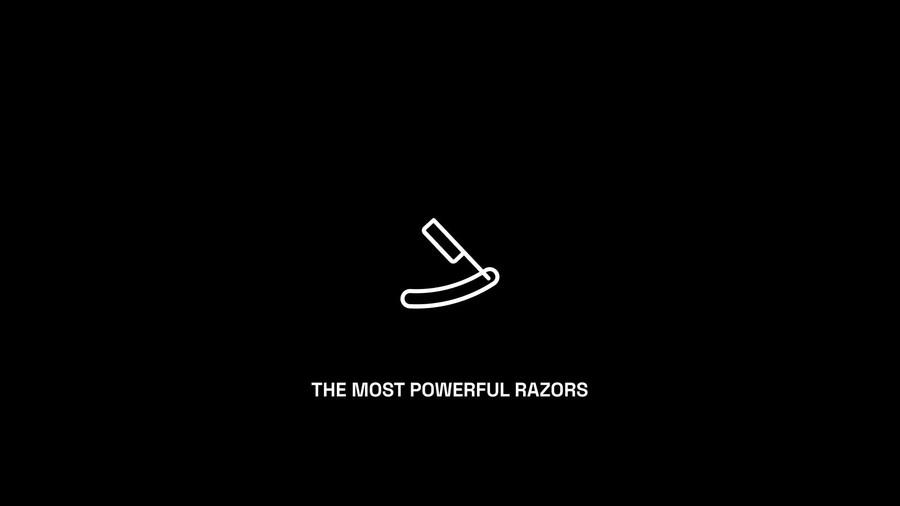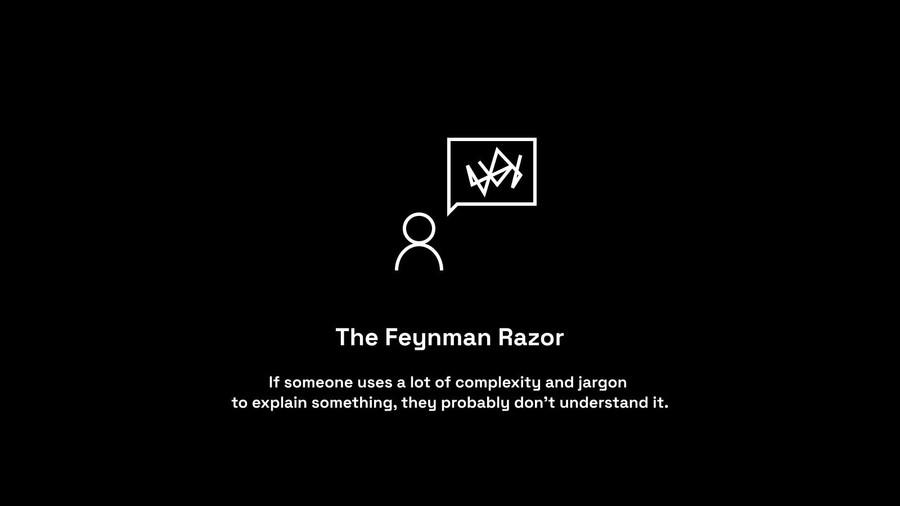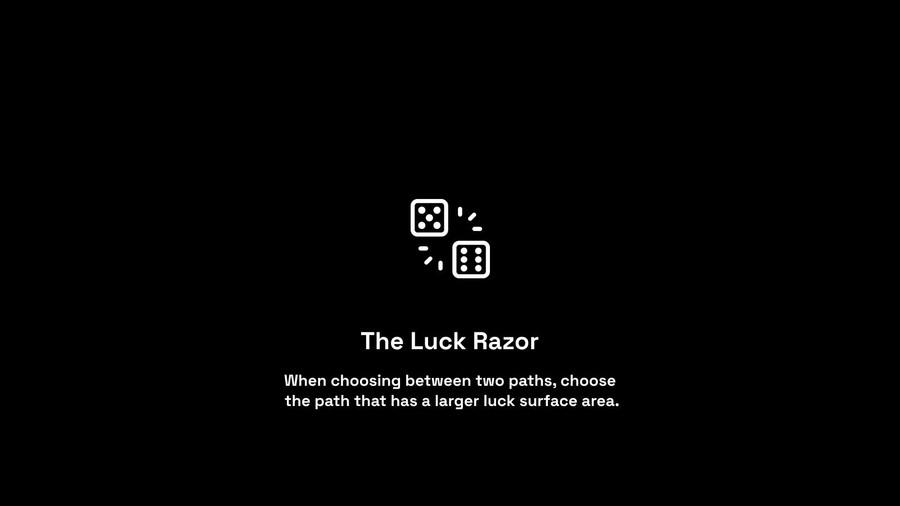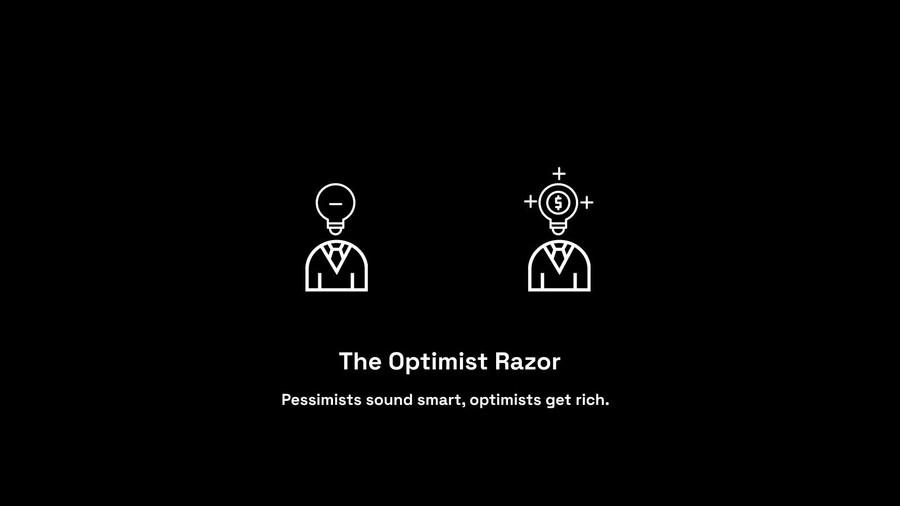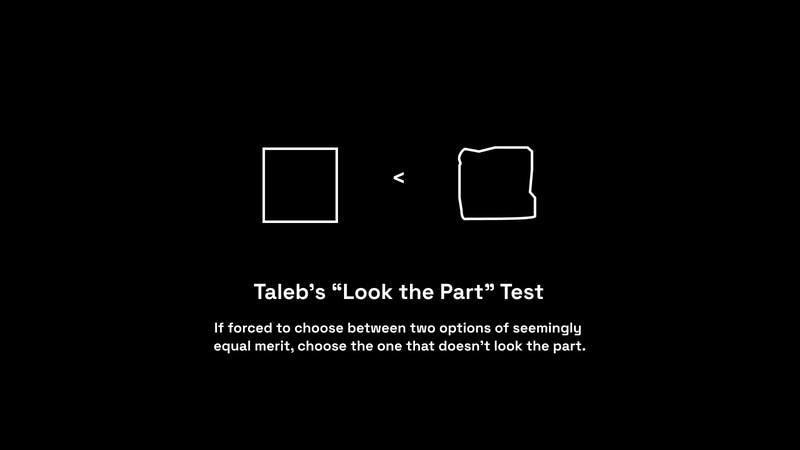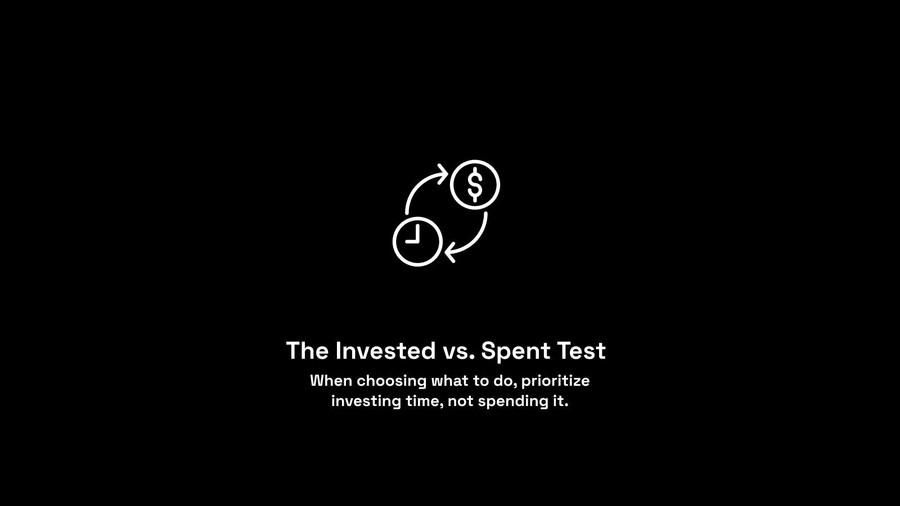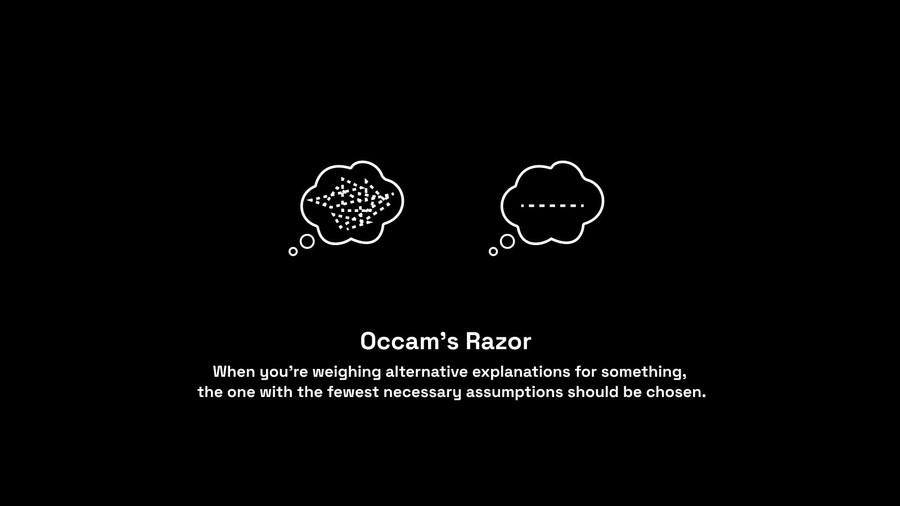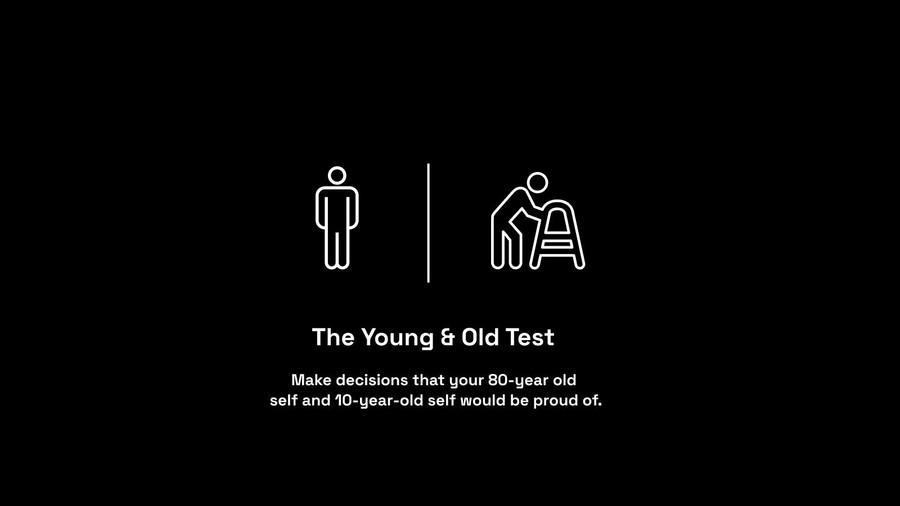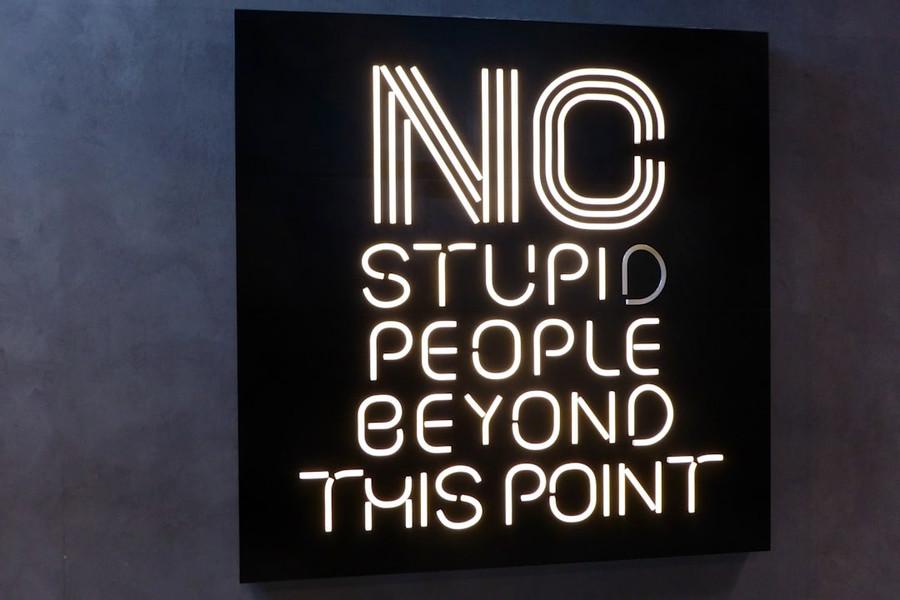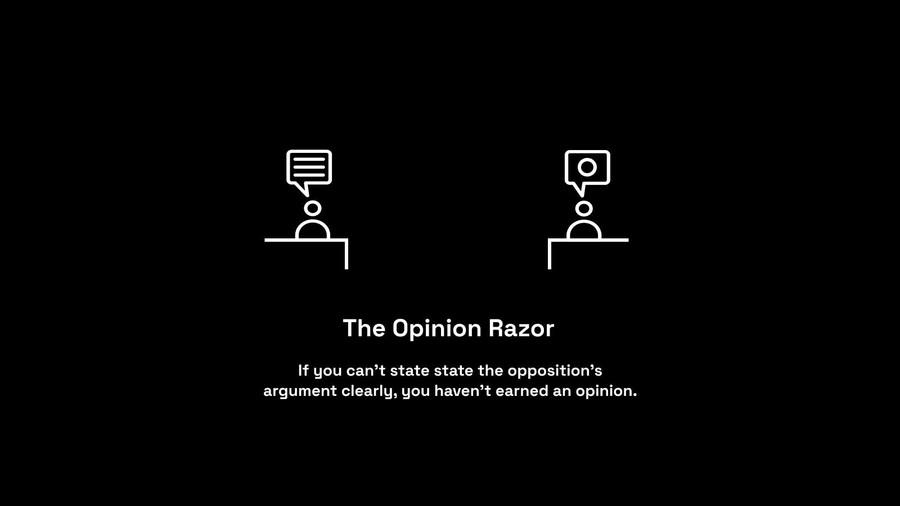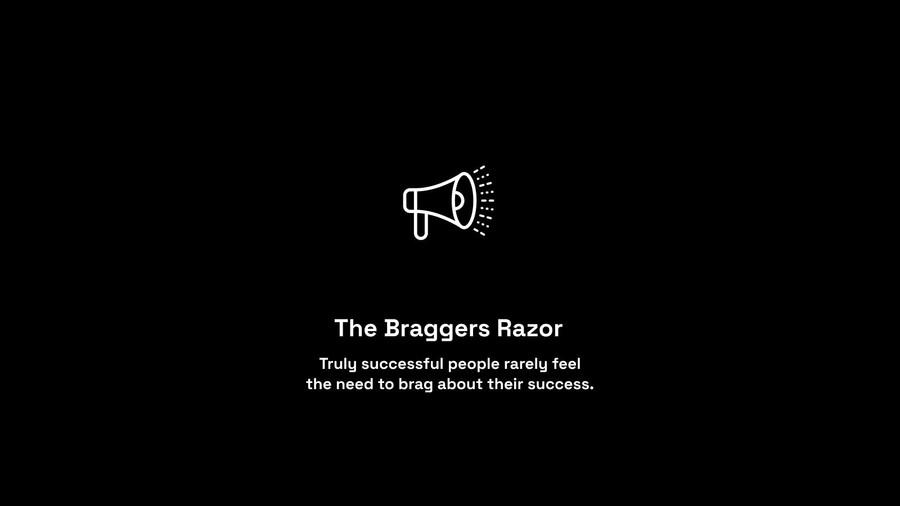The Curiosity Chronicle | The Most Powerful Decision Making Razors
Curated from: sahilbloom.com
Ideas, facts & insights covering these topics:
24 ideas
·12.8K reads
60
6
Explore the World's Best Ideas
Join today and uncover 100+ curated journeys from 50+ topics. Unlock access to our mobile app with extensive features.
The Razor
A “razor” is a rule of thumb that simplifies decision-making.
Humans are wired to take shortcuts in our decision-making. These shortcuts can lead us astray—but when used appropriately, the shortcuts can be extremely valuable.
Here is a list of powerful decision-making razors to help you make better decisions, faster than ever before.
115
1.14K reads
The Feynman Razor
Complexity and jargon are used to mask a lack of deep understanding.
If you can’t explain it to a 5-year-old, you don’t really understand it.
If someone uses a lot of complexity and jargon to explain something, they probably don’t understand it.
126
972 reads
The Luck Razor
When choosing between two paths, choose the path that has a larger luck surface area.
Much of what we call "luck" is actually the macro result of 1,000s of micro-actions.
Your daily habits put you in a position where “luck” is more likely to strike.
It’s hard to get lucky watching TV at home—it’s easy to get lucky when you’re engaging and learning, physically or digitally.
Spend more time on things that increase your luck surface area.
133
787 reads
The Arena Razor
When faced with two paths, choose the path that puts you in the arena.
It's easy to throw rocks from the sidelines. It's scary and lonely in the arena—but it's where growth happens.
Once you're in the arena, never take advice from people on the sidelines.
122
716 reads
The Optimist Razor
When choosing who to spend time with, prioritize spending more time with optimists.
Pessimists see closed doors. Optimists see open doors—and probably kick down the closed doors along the way.
Remember: Pessimists sound smart, optimists get rich.
123
711 reads
Looking The Part Razor
Nassim Nicholas Taleb famously proposed this rule of thumb in his best-selling book, Skin in the Game.
He talks about choosing between two surgeons of equal qualification and experience. One looks highly refined and one looks like a butcher.
If forced to choose between two options of seemingly equal merit, choose the one that doesn’t look the part.
The one who doesn’t look the part has had to overcome much more to achieve their status than the one who fits in perfectly.
123
650 reads
The Gratitude Razor
When in doubt, choose to show MORE gratitude to the people who have mentored or supported you.
Say thank you more. Tell someone you appreciate them. Not just on special occasions—every single day.
Lean into gratitude daily and your life will improve.
117
604 reads
Spending Vs Investing Time
Time is either *invested* or *spent*.
Invested time—actions that compound:
- Reading
- Physical activity
- Mindfulness
- Relationship building
Spent time—actions that don’t compund.
When choosing what to do, prioritize investing time, not spending it.
124
624 reads
Rooms Razor
If you have a choice between entering two rooms, choose the room where you're more likely to be the dumbest one in the room.
Once you're in the room, talk less and listen more.
Bad for your ego—great for your growth.
123
551 reads
The New Project Razor
When deciding whether to take on a new project, follow a simple two-step approach:
Is this a "hell yes!" opportunity? If not, say no. If yes, proceed to Step 2.
Imagine that this is going to take 2x as long and be 1/2 as profitable as you expect. Do you still want to do it? If no, say no. If yes, take on the project.
Using this approach will force you to say no much more often—you'll only say yes to projects you are extremely excited about, which are ultimately those that drive asymmetric rewards in your life.
121
468 reads
The Uphill Decision Razor
When faced with two options, choose the one that’s more difficult in the short-term.
There are two paths:
Easy now—hard later.
Hard now—easy later.
Naval Ravikant calls this making "uphill decisions”—overriding your pain avoidance instinct and choosing the path that looks more arduous.
It's worth it—short-term pain typically creates compounding long-term gain.
123
504 reads
Occam's Razor
When you're weighing alternative explanations for something, the one with the fewest necessary assumptions should be chosen.
Put simply, the simplest explanation is often the best one.
Simple Assumptions is greater than Complex Assumptions. If you have to believe a complex, intertwined series of assumptions in order to reach one specific conclusion, always ask whether there is a simple alternative assumption that fits.
Simple is beautiful.
115
456 reads
Listen Mode
If you encounter someone with opinions or perspectives very different from your own, listen twice as much as you speak.
Our natural tendency when we hear a view we disagree with is to respond and refute it.
Instead, always default to Listen Mode. You'll learn way more that way.
115
403 reads
The Lion Razor
If you have the choice, always choose to sprint and then rest.
Most people are not wired to work 9-5—long periods of steady, monotonous work. It's a remnant of the Industrial Age.
Parkinson’s Law states that work expands to fill the time available for its completion. When you establish fixed hours to do your work, you find unproductive ways to fill it—you work longer, but get less done.
If your goal is to do inspired, creative work, you have to work like a lion: Sprint when inspired. Rest. Repeat.
118
425 reads
Smart Friends Razor
If your smartest friends are all interested in something, it’s worth paying attention to.
If that something seems crazy, it's worth paying a lot of attention to.
The passions and weekend projects of the smartest people in your circles are a looking glass into the future.
114
417 reads
The Young & Old Test
Make decisions that your 80-year-old self and 10-year-old self would be proud of.
Your 80-year-old self cares about the long-term compounding of the decisions of today.
Your 10-year-old self reminds you to stay foolish and have some fun along the way.
When you make decisions with both of them in mind, you have a recipe for a productive, joy-filled life.
121
381 reads
The Duck Test
If it looks like a duck, swims like a duck, and quacks like a duck, it’s probably a duck.
You can determine a lot about a person by observing their habitual actions and characteristics.
When someone tells you who they are, believe them the first time.
114
378 reads
Hanlon's Razor
Never attribute to malice that which can be adequately explained by stupidity.
In assessing someone's actions, we shouldn't assume negative intent if there's a viable alternative explanation—different beliefs, lack of intelligence, incompetence, or ignorance.
Applies to politics, relationships, and general Twitter discourse...
114
396 reads
Hitchens’ Razor & Newton’s Flaming Laser Sword
Anything asserted without evidence can be dismissed without evidence.
If something cannot be settled by reasonable experiment or observation, it's not worth debating.
These will save you from wasting a lot of time on pointless arguments.
116
375 reads
The Opinion Razor
Opinions are earned—not owed.
If you can't state the opposition's argument clearly, you haven't earned an opinion.
There's a natural human tendency to feel the need to have an opinion on absolutely everything. When asked about a topic you don't understand deeply, take pride in having no opinion. If it's important, do the work to earn one.
120
350 reads
The Writing Knife Block
If you're struggling to understand something, try writing it out.
When you write, you expose the gaps that exist in your logic and thinking. Study to fill the gaps.
Writing is the ultimate tool to sharpen thinking—use it as a "knife block" for life.
121
364 reads
The Braggers Razor
Truly successful people rarely feel the need to brag about their success.
If someone regularly brags about their income, wealth, or success, it's fair to assume the reality is likely a small fraction of what they claim.
If they consistently name-drop important people with no relevant context, it's fair to assume that fraction is even smaller than you originally thought.
115
351 reads
The Reading Razor
When deciding what to read, just read whatever grabs you. When it stops grabbing you, put it down.
Avoid the trap of only reading “impressive" sounding books that bore you to death.
Never establish reading vanity metrics as goals.
114
385 reads
The Stress-Reward Test
Too many people take on stress that has no upside.
If something is going to be stressful, consider whether the reward is sufficiently outsized to justify the stress.
If it isn't, don't take it on.
116
424 reads
IDEAS CURATED BY
CURATOR'S NOTE
Life-changing stuff.
“
Jack 's ideas are part of this journey:
Learn more about problemsolving with this collection
How to build trust in a virtual environment
How to manage remote teams effectively
How to assess candidates remotely
Related collections
Similar ideas
9 ideas
The Curiosity Chronicle | The Power of Anti-Goals
sahilbloom.com
23 ideas
Lies You've Been Told About the World
sahilbloom.com
9 ideas
The ABC Goal System | The Curiosity Chronicle
sahilbloom.com
Read & Learn
20x Faster
without
deepstash
with
deepstash
with
deepstash
Personalized microlearning
—
100+ Learning Journeys
—
Access to 200,000+ ideas
—
Access to the mobile app
—
Unlimited idea saving
—
—
Unlimited history
—
—
Unlimited listening to ideas
—
—
Downloading & offline access
—
—
Supercharge your mind with one idea per day
Enter your email and spend 1 minute every day to learn something new.
I agree to receive email updates

